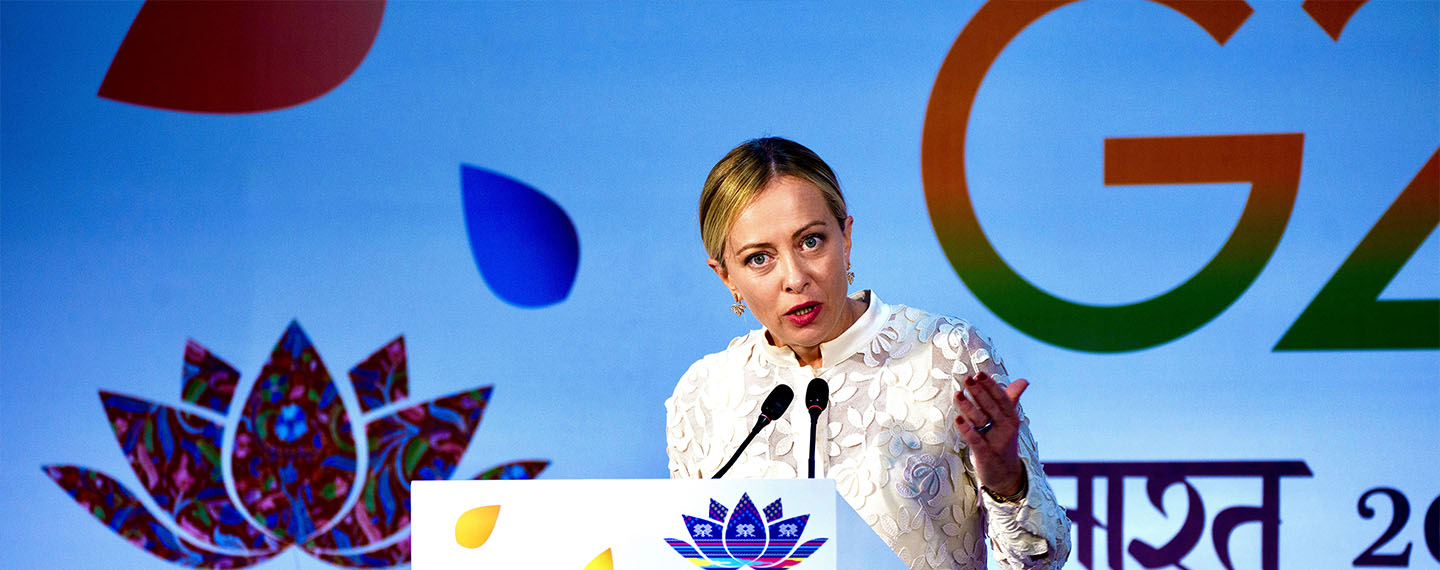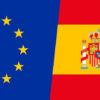At the G20 in New Delhi, Italian Prime Minister Giorgia Meloni announced Italy’s exit from the Belt and Road Initiative (BRI), which the country had joined in March 2019. The long-expected decision by the current Italian government had recently been anticipated by a similar statement by Italy’s Foreign Minister, Antonio Tajani, during a visit to Beijing, although with some nuances that were also reflected in Meloni’s announcement, namely that of a ‘mutually beneficial’ partnership with China and the ‘strengthening’ of bilateral cooperation between the two countries. How such cooperation will take place has yet to be clarified from either the Chinese or the Italian side.
Italy’s official exit from the BRI should come as no surprise for two reasons. During Italy’s last election campaign in the summer of 2022, Meloni said that the country’s adherence to the BRI was a ‘mistake’. Last November, the Defence Minister, Guido Crosetto, said that the renewal of the agreement between the two countries, which was to expire in 2023, was ‘unlikely’. On 21 April 2023, Meloni, as new Italian Premier, confirmed that Italy intended to exit the BRI, but the process has taken many months, up to the G20 Summit that has just ended.
The decision to join the BRI was made by the Five star/League coalition government back in March 2019, which was diametrically opposed to the current government’s position with respect to China.
Italy was the only G7 member to move out of line with the Western front in that year, when it signed a Memorandum of Understanding (MoU) to join the BRI, and it remains the only one. It has made essentially no gains from its participation in the BRI. Economic integration between the two countries has not progressed significantly through either trade or investment. Italy’s exports to China have increased only slightly, from €14.5 billion to €18.5 billion at the end of 2022. At the same time, Italy’s imports from China rose from €33.5 billion to €50.9 billion during the same period. Therefore, Italy now has a far larger bilateral trade deficit with China. One of the goals of the MoU was to rebalance an uneven trade relationship, yet nothing has changed after four years. As for investment, China’s foreign direct investment in Italy has plummeted from US$650 million in 2019 to barely US$20 million in 2020, with a slight increase in 2021 to US$33 million. While there has been a general slowdown in Chinese investment globally and in Europe, the drop with Italy has been far more. In fact, China’s investments in Europe has remained extremely concentrated in Germany, France and the Benelux countries, all of which are non-BRI members and the top targets in the EU for Chinese FDI.
The question underlying the announcement is what the consequences might be of such an unprecedented event, as no BRI partner country has never officially opted out before. Beyond isolated assertions that exiting means that ‘Italian companies and citizens who work with China would pay a heavy price if Rome pulls out of the programme’[1], the lessons from past experiences of deteriorating bilateral relationships between China and Western countries are not encouraging.
China’s retaliation against Lithuania[2] is a good example, as it is an EU member state, although economically small. Other cases that might be more relevant are China’s reprisals against Canada, which is also a G7 member like Italy. Finally, there are lessons to be drawn from its reaction with Australia, focused on halting imports. But China’s blockade of imports from Lithuania was even more dramatic since it included imports from Germany that contained from Lithuania.[3] All of these cases, though, had a highly political content: Taiwan in the case of Lithuania, the origin of the COVID pandemic in Australia’s and the arrest of the daughter of Huawei’s founder in Canada. The question is how the decision to leave BRI will be read politically by China’s leadership.
Against such a backdrop, Meloni has so far tried to limit the politicisation of her decision to leave BRI, leaving the door open to other types of agreement with Beijing but not under the BRI trademark. Meloni’s official visit to the US in late July probably helped support her firm stance on leaving. Some observers consider that leaving the BRI is a red line for Beijing, but Meloni’s announcement in Delhi does not seem to have prompted an outright negative reaction from China.
The key to understanding the ‘shifting’ red line regarding Italy’s exit from the BRI might be in Meloni’s announcement in Delhi of ‘future cooperation’ between the two countries. All in all, Meloni has two conflicting constraints. On the one hand, Italy is a founder member of NATO and has been one of the most critical voices against Russia’s invasion of Ukraine, which China is –at least indirectly– supporting. On the other hand, Meloni’s most powerful constituency is the business sector, which always prefers to look the other way when it comes to introducing geopolitical factors into their strategic business decisions, and generally uses its lobbying power to secure government support in any circumstances that may arise. As a result, Meloni has good reasons to have opted for a low-key exit while at the same time continuing business cooperation, both in Italy and in third countries. This should avoid any risk of retaliation, which is what the Italian business community is most concerned about these days.
China’s domestic situation also needs to be considered when pondering its government’s reaction to the Italian announcement. The increasingly worrying economic situation should, in principle, deter China from taking aggressive measures against Italy, although it must be borne in mind that China’s structural deceleration during the past few years has been accompanied by rising nationalism and a greater hostility to countries perceived to be opposing China.
Moving to the more general perceptions of both countries, the sentiment of the Italian media regarding China improved progressively in the aftermath of the COVID pandemic, although there has been a deterioration over the past couple of months (see Figure 1). The sentiment of the Chinese regarding Italy has not changed much, at least in the Chinese language media although to a somewhat greater extent in China’s English-language media (see Figure 2). This recent divergence may suggest that the Chinese-language media (ie, the media available in mainland China) do not want to over-emphasise Italy’s intention of leaving the BRI as it could risk reducing the country’s reputation. To the contrary, the Chinese English-language media could instead be purposefully showing the deteriorating sentiment regarding Italy in order to raise concerns amongst the Italian business community of the potential consequences of exiting the BRI.
All in all, Meloni’s handling of Italy’s exit from BRI is important for the rest of the world. She has chosen a multilateral setting, namely the G20 summit, but has clearly avoided confrontation by floating the idea of a renewed bilateral co-operation with China. How such a cooperation might shape up in the future will be carefully observed in other European capitals, especially Brussels and Washington DC. Beyond that, other members of the BRI, especially those disappointed with the gains obtained, if any, will be keeping an even closer watch on the aftermath of Meloni’s announcement.
[1] https://www.ft.com/content/15249b54-2459-4126-8fbf-780599cf30ad.
[2] Where China implemented economic sanctions following the opening in November 2021 of a ‘Taiwan Representative Office’ in Vilnius.
[3] https://www.ft.com/content/15119be1-3d57-4769-8f82-ff8cb36a668b.
Elcano Comments
This is a new initiative of the Institute that aims to offer analyses by experts on topics that are within the scope of our research agenda. They are published on no regular basis but as opportunity arises in accordance with the advice of the broader academic community in cooperation with the Elcano Royal Institute.




